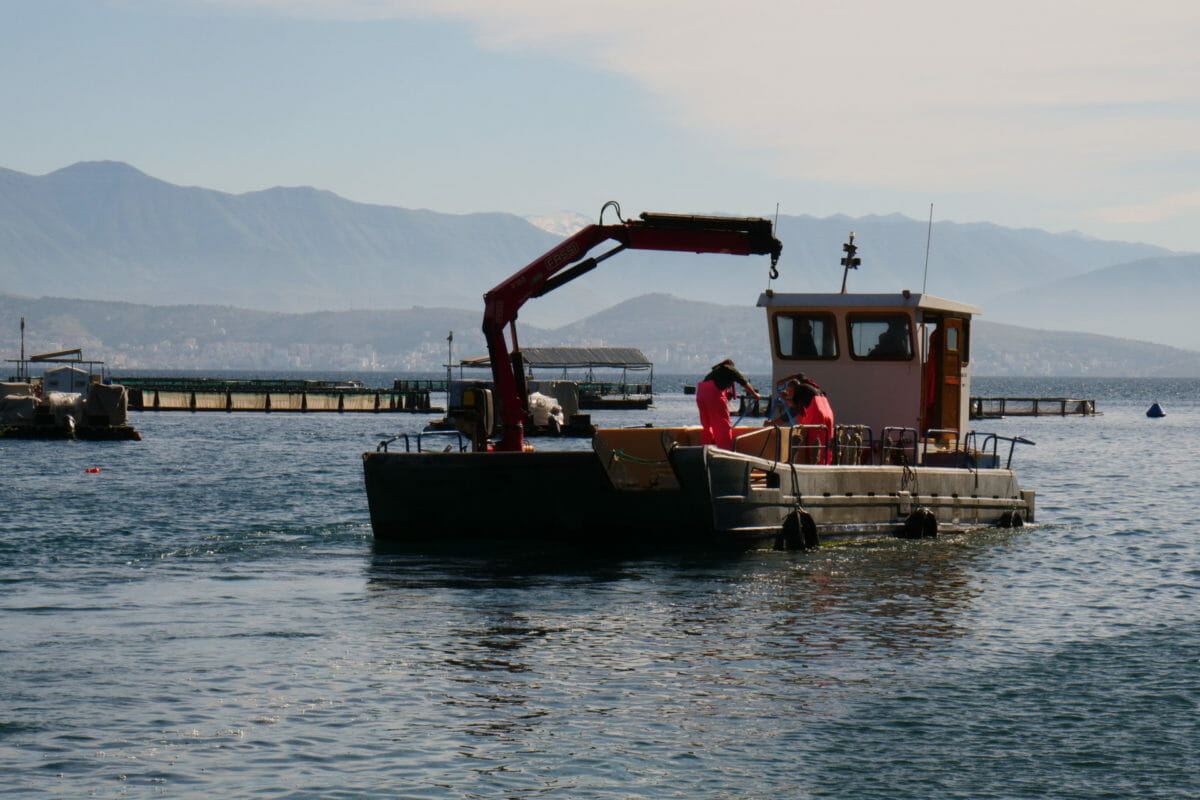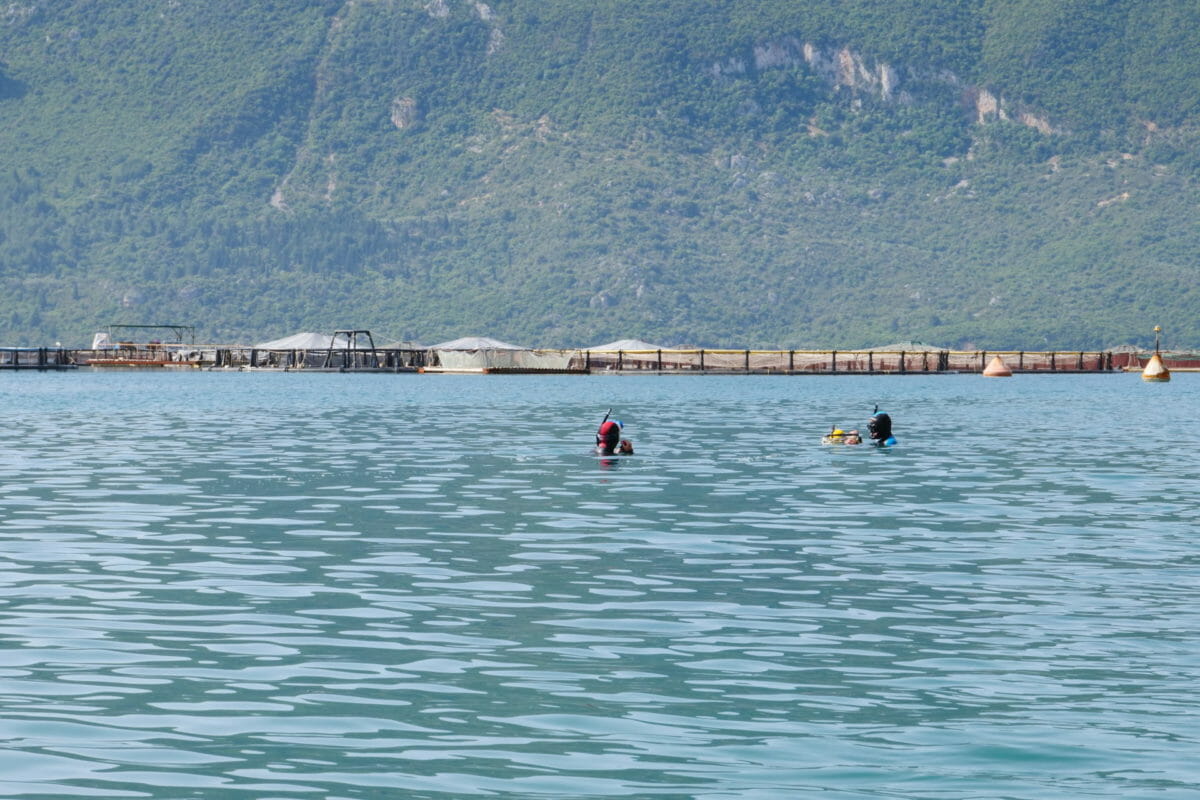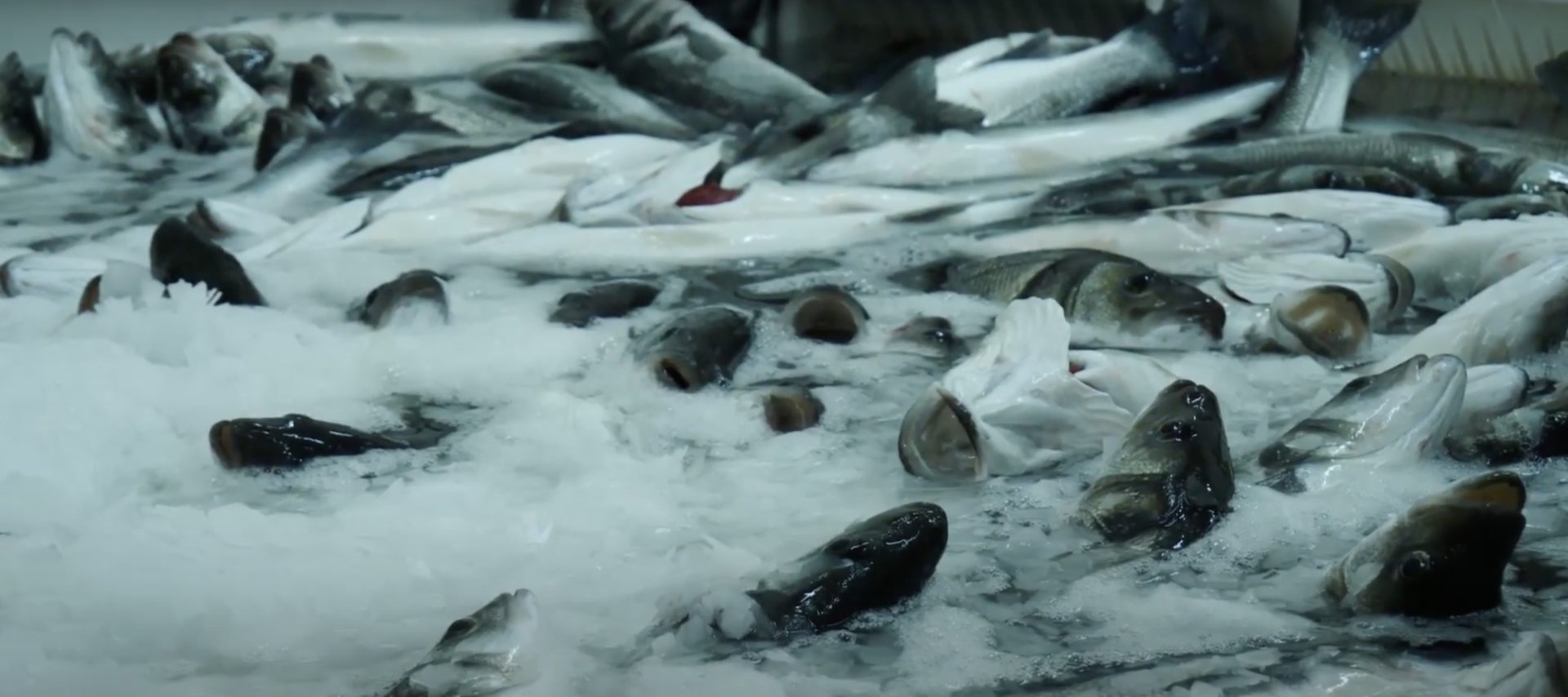Collapsed wild fish populations, yellowing seagrass and marine dead zones…this is how scientists from the Archipelagos Institute for the Protection of the Sea described the desolation they found while researching fish farms in western Greece.
Since the late 1980s sea bass and sea bream farms have proliferated in this stretch of sea between the Aetolia-Acarnania region and the Ionian Islands, an area The Ferret investigated in March 2021.
It is this tiny part of the Mediterranean, which has become one of the main centres of the fish farming industry in Europe. Though fish farmers insist the impact is minimal, Greek scientists now claim the pollution produced is killing crucial marine ecosystems.
“Aquaculture activities have produced heavy repercussions on marine ecosystems,” concluded the Archipelagos researchers.
Their field research on the coast of the Aetolia-Acarnania region was carried out in June, when they assessed the health of the ecosystems and collected images and samples from the waters and seabed around the farms.
“The preliminary results of the study reveal a dead landscape, with marine ecosystems damaged by the fish farming activities that have persisted there for decades,” the researchers said at a workshop on 28 June to present their preliminary results.
The study confirms the perception of the inhabitants and fishermen of the islands and villages that overlook this stretch of sea. They have long talked about heavily damaged seabeds and wildlife population collapses.
“When you build a large cage in an enclosed sea area like this, where even fishing should be banned, there are consequences”, says Tef Karfakis, a marine biologist and head of the campaign group, Terra Sylvestris, which is based in the Greek island of Kalamos.
For years Karfakis has denounced the impact of fish farming on the delicate balance of this stretch of the Mediterranean, where there are three Natura 2000 protected marine areas.

“When the fish choose a stretch of the seabed as a spawning area, they do so because they find very specific environmental characteristics. You can’t interfere by putting a fish farm in that place, or you will compromise that balance,” claims Karfakis.
Several studies have measured the impact of fish farms on the surrounding ecosystems, due to spillages of uneaten feed and animal waste. One 2011 study estimated that for every 100 tons of fish produced, nine tons of polluting nitrates are released into the sea.
Asked to comment on the findings by the Archipelagos Institute, the Hellenic Aquaculture Producers Organisation (HAPO) said that “as a rule, the effect of fish farming on the quality of the water is minimal and concerns the accumulation mainly of food residues and faeces in the seabed exactly under the cages”.
According to the industry body, the fish farms in the area “comply with all the strictest EU regulations regarding the preservation of the environment and animal welfare”.
Greece is the main European producer of sea bass and sea bream, producing 150,000 tonnes in 2019. According to the latest industry report, 83 per cent is destined for export, with most going to Italy and Spain and some to the UK.
Almost a third of Greek production is concentrated in Aetolia-Acarnania and between the Ionian islands. What’s more the Greek government is planning a major expansion over 16,000 hectares of sea.
“We oppose this project which dedicates 4,000 hectares to fish farms on the stretch of coast between the towns of Astakos and Mytikas,” said Giannis Triantaphyllakis, mayor of Xiromero, in the Aetolia-Acarnania region.
In recent years local opposition has been fuelled by a series of leaks from a former worker of the industry. He claimed there was frequent use of large amounts of a potentially cancer-causing chemical called formaldehyde, to treat parasites in the cages.

“We used to put in a huge amount to fight a parasite that lurks in the gills and feeds on the blood of fish, causing health problems and bleaching the gills,” said Christos Loverdos Stelakatos, a former employee of one of the main Greek fish farming companies.
His accounts have been disputed by the industry, which also pointed out that frequent use of formaldehyde in fish farms is not prohibited in Greece. “The use of a medication that contains processed formaldehyde is permitted, applied as an antiparasitic agent, when it is considered necessary for the fishes health and prescribed by a licensed veterinarian,” said the HAPO fish farmers association.
“Food safety is not compromised in any way as this agent is not absorbed by the flesh of the fish. For this reason the European Food Safety Authority (EFSA) has not imposed limits for possible residuals on fish flesh.”
The EFSA, however, told The Ferret that “formaldehyde is currently not approved for use in plant protection products in the European Union”.
A spokesperson said: “EFSA has never assessed the safety for consumer or recommended to risk managers (European Commission) legal limits for this compound on food and feed.”
The EU pesticide database says that residues of formaldehyde in food and feed should be below 0.01 milligrams per kilogram. “This limit is set by default for pesticide use of all non-approved active substances without involvement of EFSA,” added the spokesperson.
This story is the seventh and last in a series on fish farming funded by journalismfund.eu, an independent, non-profit organisation in Brussels that supports cross-border investigative journalism. Our investigations were carried out in partnership with the Italian journalist, Francesco De Augustinis.
The story was updated on 26 August 2021 to add comments from the European Food Safety Authority.

Photos/Video Credit: Francesco de Augustinis.















Time fish farms were on shore or self contained.